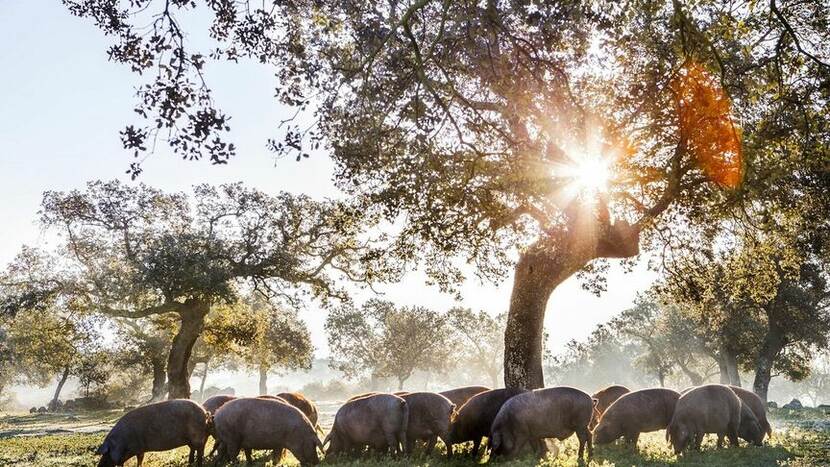Spain: Farmers’ proposal to supply animal products to the Army and hospitals
Several animal products are experiencing dramatic a crisis due to the pandemic. With the hospitality industry closed to the public, gourmet food products, such as Iberian pork, suckling lamb or suckling pig, are piled up on farms and must find a way forward.

Therefore, the farmers’ organization ASAJA has proposed a number of measures to the Ministry of Agriculture, Fisheries and Food. Among them, that the public administrations make a massive purchase of these animal products, at a good price, to feed entities’ staff, such as the Army, hospitals or elderly homes.
It is necessary to find a way for animals to arrive at the slaughterhouse before the closure of certain markets, those absorbing sheep, pig and goat meat. There are thousands of farms all over the country that are now reaching a limit.
The organization has also detected some abuses by buyers taking advantage of the situation offering derisory prices. It is not a question of throwing them away either; at the same time, ASAJA shows its concern about the closure of auctions and fur factories, of interest to the sheep sector because they could account for 15% of the animal value.
In view of this, the organization has submitted some proposals to the ministry in order to guarantee the future of these farms. Another of them is to be able to freeze the production that market cannot absorb and thus give priority to private storage as was done with olive oil.
Flexibility to be able to receive the CAP aid and the elimination of the rates to get the coupled support to sheep and goats on a temporary basis are other proposals.
They also request the establishment of a minimum purchase price to avoid abuses by purchasers and to involve the retail sector in buying national products and limiting imports.
The Iberian pig
ASAJA transmits the Ministry that the slaughter of Iberian pigs has been greatly slowed down and the forecasts are poor. In a few days, farmers may find it impossible to sell them, with the aggravating circumstance that many feedlots and slaughterhouses have been closed.
In the case of the bovine cattle, the situation is similar to that described above. In this sub-sector this is clearly seem in older animals, whose more appreciated cuts are consumed at the hospitality sector. In addition, delays and reduction in the number of yearlings and calves slaughtered are causing the collapse of feedlots and arriving to the slaughterhouse with high weights not suitable to trade.
Bovine farmers also propose to seek public-private partnerships to keep slaughter lines open and allocate hamburger meat to soup kitchens and NGOs. Another measure is to somehow stop imports of the more exclusive cuts such as frozen loins and tenderloins.
The dairy sector
A serious problem has also been detected in the dairy sector, in particular, in the sheep and goat milk sector, due, among other reasons, to the closure of markets which absorbed them. Industries are at the limit of their capacity, mainly the cheese companies due to the drop in cheese sales.
The Spanish dairy industry renews monthly its contracts with farmers and has already reduced the amount of milk to be collected, in addition to a 30-40% drop in milk price deliveries in April.
Source: elespanol.com